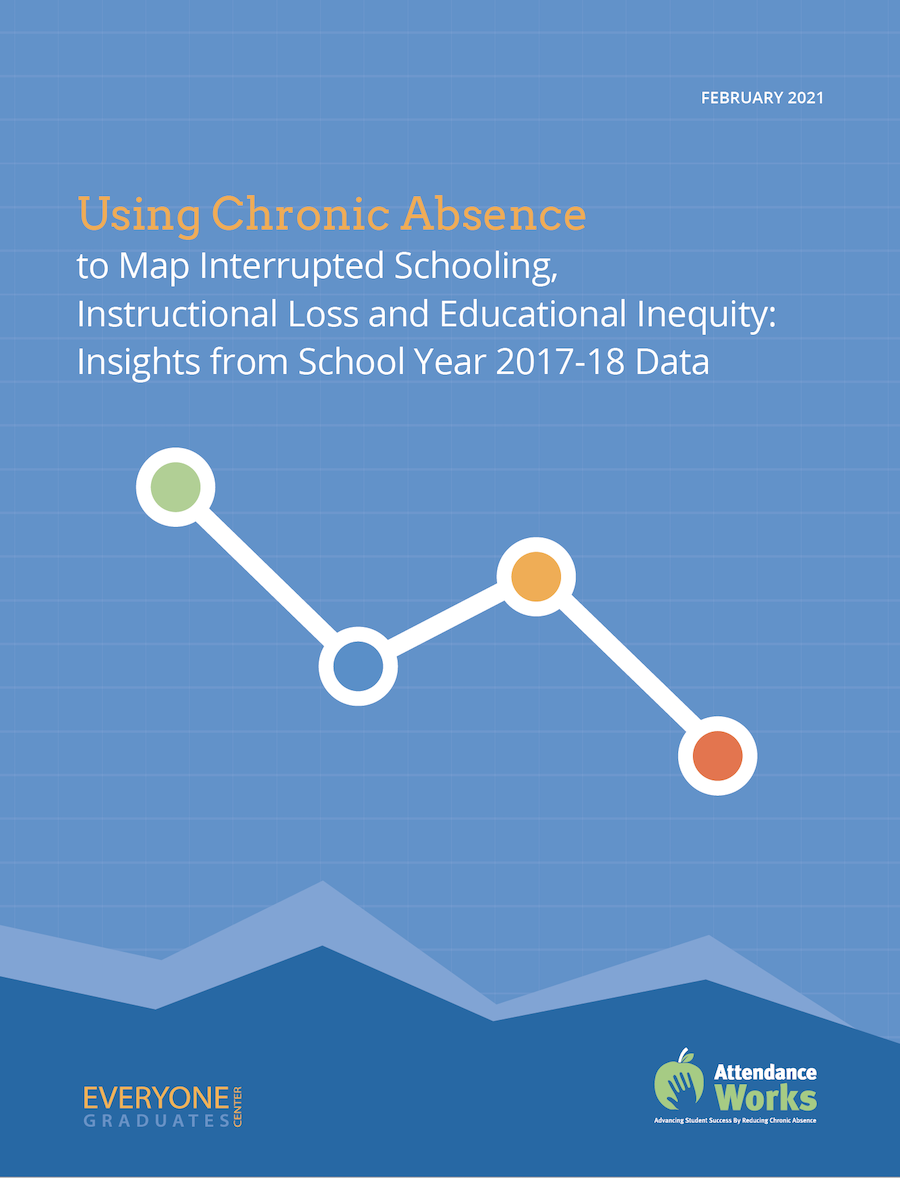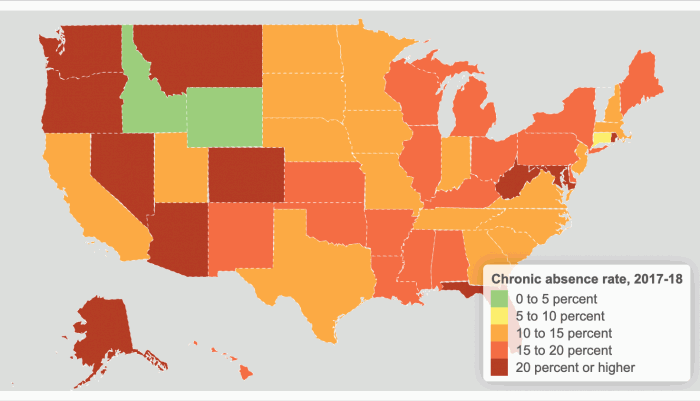
Using Chronic Absence to Map Interrupted Schooling, Instructional Loss and Educational Inequity: Insights from School Year 2017-18 Data, by Attendance Works and the Everyone Graduates Center, February 2021.
This report provides a national and state analysis of how many schools face high levels of chronic absence and shows how chronic absence data reported prior to the coronavirus pandemic can help guide strategies to address the learning loss that has been further exacerbated by Covid-19.
Prior to the pandemic, 8 million students in every state and at every grade level, missed 10% (or nearly a month) of school in 2017-18 school year, according to the most current data released by the U.S. Department of Education’s EDFacts initiative. The analysis shows that students with the most absences in 2017-18 are also in the groups hardest hit during the pandemic by poor health, economic hardship and unequal access to schooling. Early data from the state of Connecticut, included in the report, shows a significant increase in absenteeism for the 2020-21 school year.
The report offers key recommendations school districts and states can take to turn around low attendance during the pandemic. State data reports for all states* and the District of Columbia, and an interactive map from The Hamilton Project at the Brookings Institution, allows anyone – from parents to policymakers – to explore the scale of the chronic absence problem documented in the 2017-18 school year data at multiple levels: school, district, state and country.
*Vermont did not provide data for the 2017-18 school year.
